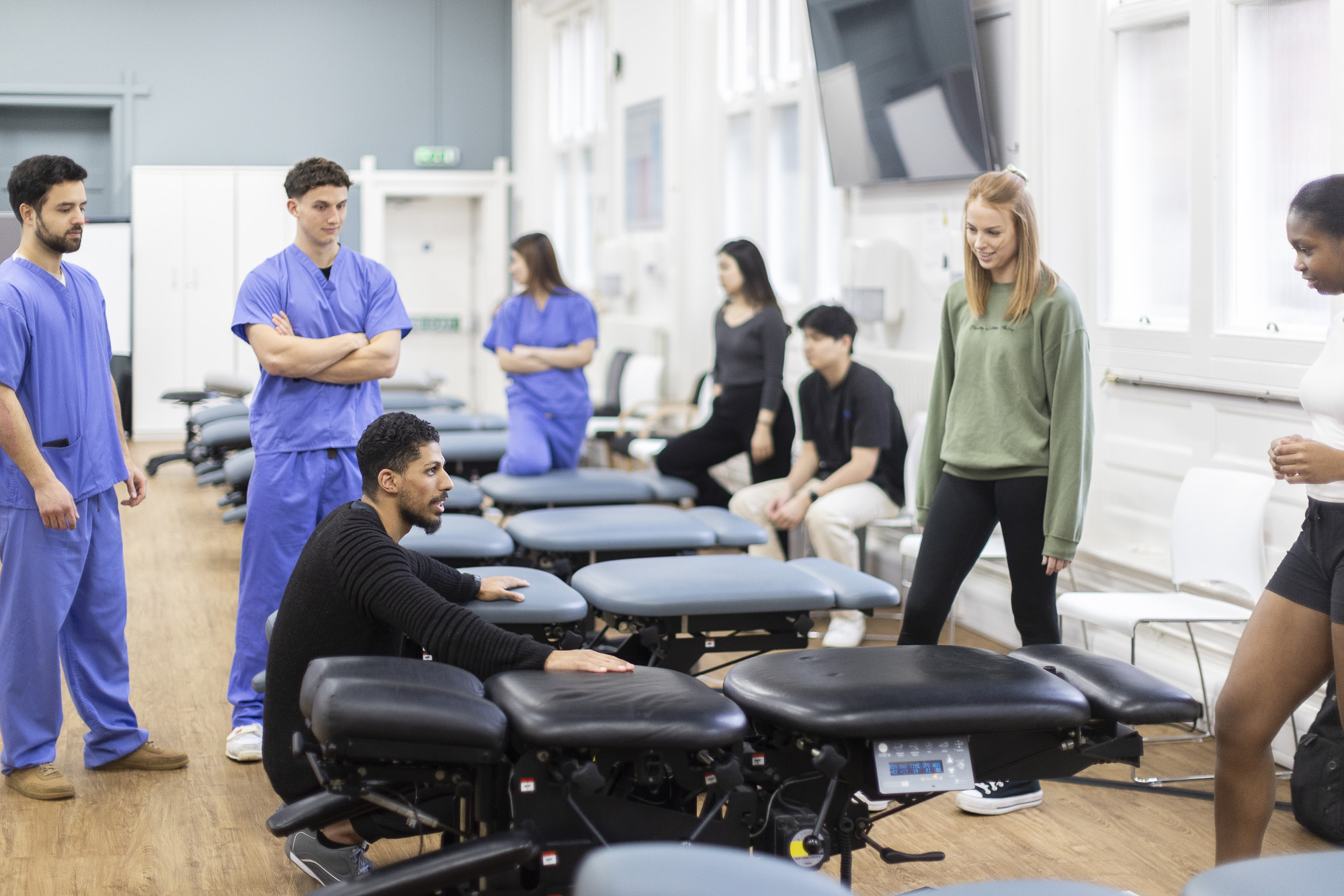Research Grants from Royal College of Chiropractors

AECC University College has been awarded x2 £15,000 research grants from the Royal College of Chiropractors (RCC) for ‘The COURSE Study – UK’ which will look into the clinical course of spinal pain in adolescents and ‘The role of the head-neck segment musculature on sports related concussion’.
Grant One:
The team of researchers at AECC University College include Aurelie Marchand, Dr Michelle Holmes and Dr Amy Miller. This feasibility study is part of an international study led by Dr Michael Swain who is also leading locally in Australia and by Dr Katie Pohlman leading the study in North America. The team is also joined by Prof Kate Dunn from Keele University.
The overarching aim of the study is to inform the design and conduct of a large study to assess the clinical course of spinal pain and factors that predict persistent symptoms in adolescents seeking care for spinal pain. Given the clear rise in primary care consultations for back pain in the UK throughout adolescence, this study represents an essential step on the path to conducting a much-needed definitive clinical cohort study.
Towards the end of adolescence, spinal pain (such as neck, mid- and low- back pain) becomes the world’s leading cause of years lived with disability. The impact of spinal pain is significant and it affects young people, their families and society. This impact is observed as school absenteeism, impaired social functioning and peer relationships, restriction of activities daily living and physical activity, medication use and care-seeking.
Adolescence marks a critical transition period for human development and health risks. Health and health behaviours established during adolescence help determine one’s health status later in life, and the risk of developing chronic diseases. Research on the clinical course of spinal pain in adolescents is therefore necessary to inform clinical practice and healthcare policy, and to evaluate new approaches to patient care.
The UK team of researchers are very grateful to the RCC for sponsoring this research and look forward to conducting this important research in the United Kingdom.
Grant Two:
This research will involve a multidisciplinary team including Phill Heritage, Professor Stewart Cotterill, Dr Alistair du Rose, Micah Atkinson, Dr Zoe Wimshurst, Dr Solomon Segal of AECC University College and Dr Samuel Oxford of Coventry University.
The project involves three main aims relating to the role of the neck musculature in relation to concussion injury in combat sports. The first aims to identify whether isometric neck strength is related to incidence of concussion in combat sports. The second, whether head impacts are associated with neurocognitive impairment in combatants, and the third to characterise the role of mass of specific muscles of the head-neck segment in isometric neck strength using novel MRI techniques.
Concussion in sports is gaining growing interest in research and sports medicine. This is due in part to links continuing to be established between participation in some sports and short- as well as long-term neurocognitive decline. This research aims to build on work conducted by Dr Samuel Oxford at Coventry University developing a reliable and valid measure of isometric neck strength. It is hoped that findings from this project will help to better understand the role the neck plays in concussion and identify possible solutions relating to neck strength that might better protect athletes in the future. It is further hoped this could also help better inform screening methods in the general population to protect against whiplash and mild-traumatic brain injury.
The team are extremely grateful for the support of the Sports Faculty of the RCC for their support in granting funding for this project. We look forward to working with the RCC Sports Faculty, International Federation of Sports Chiropractors (FICS) and other professional agencies to better protect athletes in the future.